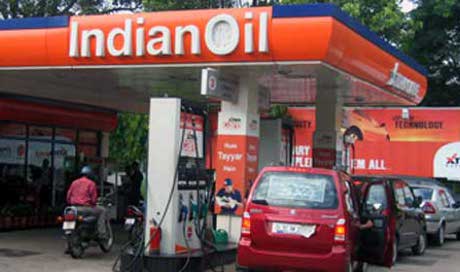
State-owned oil companies have virtually stopped producing premium or branded petrol and diesel, as sales have plunged due to huge differential in rates when compared with non-branded or ordinary fuel.
The government cut excise duty on non-branded petrol by Rs 5.50 to Rs 9.28 per litre in September. It did not cut the Rs 15.96-a-litre excise duty on branded petrol, and ordered that premium petrol and diesel be priced at cost.
Branded diesel price saw a 43 per cent jump to Rs 65.81 while those of premium petrol went up 9 per cent to an average of Rs 77.58 a litre in Delhi.
Regular unbranded petrol and diesel, heavily subsidised by the government, sell at Rs 67.90 and Rs 46.95 a litre respectively in New Delhi.
IOC sells premium fuels under XtraMile brand, while Bharat Petroleum Corp (BPCL) and Hindustan Petroleum Corp (HPCL) market the Speed and Power brands, respectively. Premium fuels contain additives that are aimed at improving engine performance and reducing emissions.
"Sales are almost nil zero," Indian Oil Corp's Director Marketing Makrand Nene said at the Petrotech 2012 Conference in New Delhi. "There are no buyers (of premium diesel or petrol) at these prices."
"We are rationalising the infrastructure," Nene said. "We will produce branded fuels only if there is demand from dealers."
An executive of HPCL said the stocks that were lying before the September 15 price hike haven't exhausted yet and oil companies would supply branded fuel to petrol pumps only if there is a demand.
"In 2007-08, the price differential between branded fuel and non-branded ordinary fuels was just 60 paise a litre, branded fuels used to contribute 20-30 per cent of our petrol and diesel volume sales," said a senior official at BPCL.
Sale of branded fuels started to fall since 2009, after the government hiked excise duty on these products.
Branded fuels, which contain imported additives helps in improving engine life and reduce pollution levels, were introduced in 2002.
The reduced sales may eat into earnings at the three state-owned fuel retailers - Indian Oil Corp, Bharat Petroleum Corp and Hindustan Petroleum Corp - as they enjoy higher margins on the premium products.
Fuel retailers have spent crores of rupees in advertising campaigns to popularise branded fuels which they claimed added value in the form of superior mileage, lower maintenance costs, improved engine protection and smaller carbon footprints.
Petrol pump owners want to convert the tanks used for storing branded fuel to those for regular fuel.